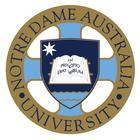Bachelor of Communications and Media (Major: Journalism)
Bachelor of Communications and Media (Major: Journalism)
The Bachelor of Communications & Media with a Major in Journalism is a dynamic and cutting-edge degree that teaches you practical and critical skills in print, radio, television, video and online journalism. Along the way, you also learn about the diverse theories that underpin modern journalism practice, your legal and…
Categories
COURSE DESCRIPTION
The Bachelor of Communications & Media with a Major in Journalism is a dynamic and cutting-edge degree that teaches you practical and critical skills in print, radio, television, video and online journalism. Along the way, you also learn about the diverse theories that underpin modern journalism practice, your legal and ethical obligations as a journalist and develop the confidence to gain employment in the exciting but constantly evolving field of media and communications.
Why study this degree?
Media and communications is a growing area with strong future employment growth expected. There are no limits to opportunities for graduates of this degree because your skills can be used across many industries. Skills such as the ability to research, analyse, interpret, and problem-solve are just what is needed in the flexible workplace of the 21st century. The ability to skilfully use technology to get messages out to audiences will make you a valued and sort after employee or perhaps an entrepreneur. Communications specialists are needed in all organisations.
If you want to embark on a media career our journalism Major provides the practical skills and theoretical background that will set you apart from the crowd. The program covers all genres of news reporting as well as the chance to gain skills in digital marketing. It includes the diverse theories and practices of journalism, including your legal and ethical obligations.
Journalism can be studied as a Major in the Bachelor of Communications & Media or a Major in a Bachelor of Arts. The Bachelor of Communication & Media pathway requires you to complete two compulsory Journalism courses and eight elective Journalism courses, including Feature Writing, Photojournalism, Radio, Digital Photography, Interactive Media and Digital Media Production.
Work Integrated Learning: When you study the Journalism Major, you will have the opportunity to complete an internship of approximately 90 hours that will allow you to put the theory into practice in a workplace environment.
Graduates find work as journalists, digital marketers, communication consultants, PR advisors, reporters, social media specialists, communications advisors, events coordinators, campaign officers, researchers, photographers, editors, travel writers, videographers and freelance journalists.
Career Opportunities:
The following careers are open to graduates of this program:
- Print, radio or television journalist
- Online journalist or media producer
- Feature writer
- Publisher
- Photojournalist
- Film maker
REQUIREMENTS
Applicants must meet High school qualifications (or equivalent) to apply for undergraduate program. Academic minimum entry requirements for international applicants vary from country to country.
IELTS (Academic) – 6.5 overall, with no individual band score lower than 6.0; CAE/CPE – 176 overall, with no individual band score lower than 169; PTE Academic – 58 overall, with no individual band score lower than 50; TOEFL (iBT) – 84 overall, with no score lower than 21 in writing and no other band score lower than 17.
EDUCATIONAL INSTITUTION
The University of Notre Dame Australia is a leading institution in Australia. It offers a range of undergraduate and postgraduate programs in arts & sciences, business, philosophy & theology, education, law, nursing & midwifery, physiotherapy, medicine and health sciences. The University has campuses in Sydney, Perth and Broome. It also has seven additional Clinical Schools in New South Wales and Victoria, which are part of its School of Medicine. The institution has one of the highest graduate employment rates in the country. During their time studying, students are offered individual career support, covering everything from CV writing to brushing up on their interview skills.




